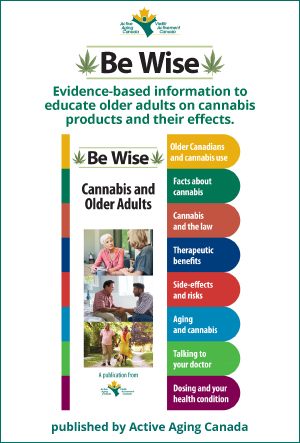First Canadian survey of its kind
PEOPLE LIVING WITH TYPE 2 DIABETES AND TREATING PHYSICIANS RAISE CONCERNS, IS CANADA READY FOR THE NEXT EPIDEMIC?
MONTREAL, Quebec – July 11, 2007 – Insight into Canadians Living with Type 2 Diabetes is the first survey of its kind to be conducted specifically among people living with type 2 diabetes and treating physicians. Results show that people with type 2 diabetes have daily difficulties with their disease management and physicians are concerned about the lack of resources for their patients.
“We are facing an epidemic of type 2 diabetes, it is one of the fastest growing chronic diseases,” said Marc Aras, Director of Communications with Diabetes Québec. “The more insight we gain about how diabetes impacts the people living with it, the better armed we will be as a society to help them manage and control it.”
Awareness, education and control needed
Everyone surveyed with type 2 diabetes was aware that their disease could lead to complications such as cardiac problems, amputations and dialysis. However, most (63 per cent) were not personally very worried about complications.
Findings showed that among those people with type 2 diabetes surveyed:
- Over half (55 per cent) did not know what their target
HbA1c level should be (average blood sugar control over
three months);
- The Canadian Diabetes Association’s recommended HbA1c goal level is < 7 per cent;
- Two in three (65 per cent) said they were somewhat/not very or not at all knowledgeable about their disease;
- One in two (47 per cent) said their blood glucose was not controlled;
- For those taking oral medications, the most important side effects experienced were weight gain, diarrhea, gas/bloating and other stomach problems.
“Type 2 diabetes is a serious public health issue especially as our population ages,” said Philippe Markon a spokesperson for Active Living Coalition for Older Adults (ALCOA). “It’s so important to stay active and fit ¾ weight gain becomes an added burden for older people living with type 2 diabetes who then have a much greater difficulty keeping active. The cornerstones for empowering these people are awareness, education and support to encourage them in making healthy lifestyle choices."
Daily difficulty with disease management
“There’s no question that managing type 2 diabetes takes an important toll on everyday activities,“ said Dr. Roxane Néron a general practitioner and spokesperson for ACTI-MENU. “Physicians recommend lifestyle changes, such as diet and exercise, which are essential for controlling type 2 diabetes, especially when certain diabetes medications may actually cause weight gain.”
According to the survey conducted with 500 Canadians living with type 2 diabetes, most (78 per cent) said that type 2 diabetes has changed their daily lives. The survey found that of these:
- Most (81 per cent) had to be careful about the food and drink they have;
- Two in three (63 per cent) have difficulty following a diet recommended by their health care professional;
- One in two (51 per cent) reported they did not manage to be physically active as recommended by their health care professional;
- Over half (56 per cent) said that diabetes has impacted the lives of their family and friends;
- More than half (51 per cent) said it made them feel tired;
- One in four (25 per cent) said it made them feel depressed;
- One in three (31 per cent) said their sex life had been affected;
- More than half (57 per cent) did not take or forgot to take some of their medications, or did not follow their dosing schedule as recommended by their physician.
“People who have type 2 diabetes are usually also being treated for other conditions such as high blood pressure and high cholesterol,” said Dr. Jean-Marie Ékoé, Epidemiologist and President of the Diabetes Québec Professional Council. “On average the survey showed they are prescribed five medications to effectively manage all their conditions; which is approximately eight pills daily.”
Physicians are concerned about lack of resources
Insight into Canadians Living with Type 2 Diabetes also surveyed 200 physicians (160 GPs and 40 specialists) who treat people living with type 2 diabetes. Results showed that most physicians are concerned about the lack of resources for their type 2 diabetes patients and that limited access to medications influences physician prescribing behaviours as patients covered by public insurance do not get the same standard of care as patients covered by private insurance. In summary, findings showed that:
- Two-thirds of physicians (66 per cent GPs, 67 per cent specialists) would like to spend more time with their patients, mainly to better educate them on diabetes:
- This is important since most patients (84 per cent) consult their physician for information on diabetes.
- Most physicians (63 per cent GPs, 57 per cent specialists) are worried about not being able to refer their type 2 diabetes patients to health care professionals who will provide them with knowledge about their disease (e.g. diabetes nurse educators, dieticians);
- The majority of physicians (79 per cent GPs, 92 per cent specialists) believe that provincial governments and the medical community should improve their support of people with type 2 diabetes;
- Most physicians (77 per cent GPs, 90 per cent specialists) prescribe different medications to diabetes patients depending upon their type of insurance coverage;
- Most physicians (79 per cent, GPs, 89 per cent specialists) are worried that new medications will not be covered by provincial formularies, thereby limiting their ability to properly treat their patients.
“Everyone living with type 2 diabetes should have access to the best treatment options available regardless of their insurance status,” said Holly Vengroff, Director External Relations for CARP (Canada’s Association for the 50Plus). “CARP strongly believes that quality health care is achieved through patients, their physicians and pharmacists making prescribing choices together, not through a government bureaucracy restricting access and choice of medications.”
Survey details
Insight into Canadians Living with Type 2 Diabetes is a nationwide survey conducted by P\S\L Research Canada in February 2007. Results were obtained by means of a Web survey completed by 500 people living with type 2 diabetes and 200 treating physicians (160 GPs, 40 specialists). With a sample of this size, the results are considered accurate to within + 4 percentage points, 19 times out of 20 for people living with type 2 diabetes; + 8 percentage points, 19 times out of 20 for GPs and + 14 percentage points, 19 times out of 20 for specialists.
Survey partners are: CARP (Canada’s Association for the 50Plus), Diabetes Québec, Active Living Coalition for Older Adults (ALCOA), ACTI-MENU and Merck Frosst Canada Ltd. The survey was funded by Merck Frosst Canada Ltd.
FOR MORE INFORMATION OR TO SPEAK WITH A MEDICAL EXPERT OR SOMEONE LIVING WITH TYPE 2 DIABETES, PLEASE CONTACT:Melissa Maloul
Cohn & Wolfe - MONTREAL
514-845-2257 ext. 228
Kyle Rooks
Cohn & Wolfe – TORONTO,
CALGARY, VANCOUVER, HALIFAX
416-924-5700 ext. 4098









